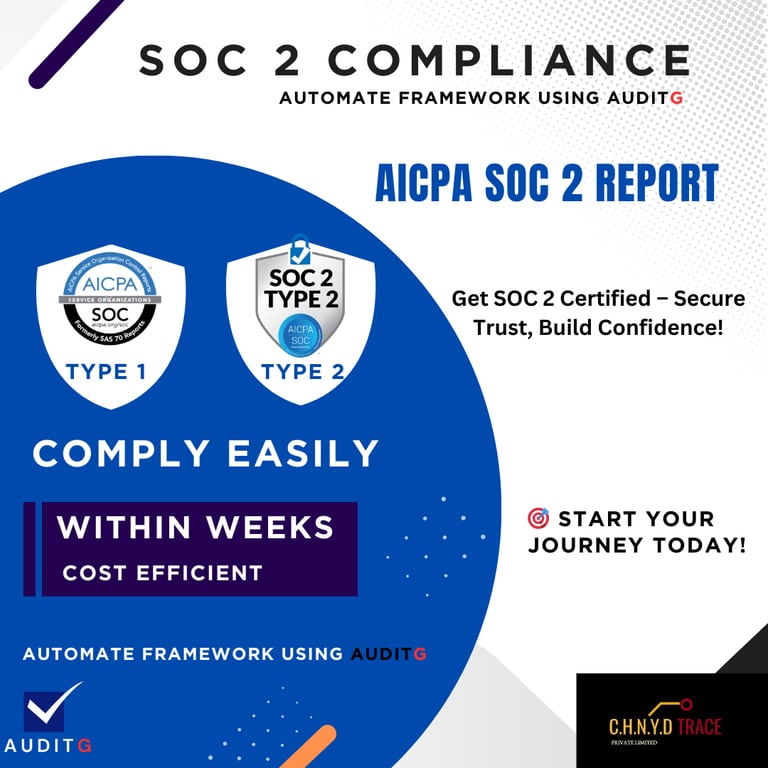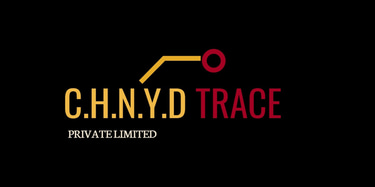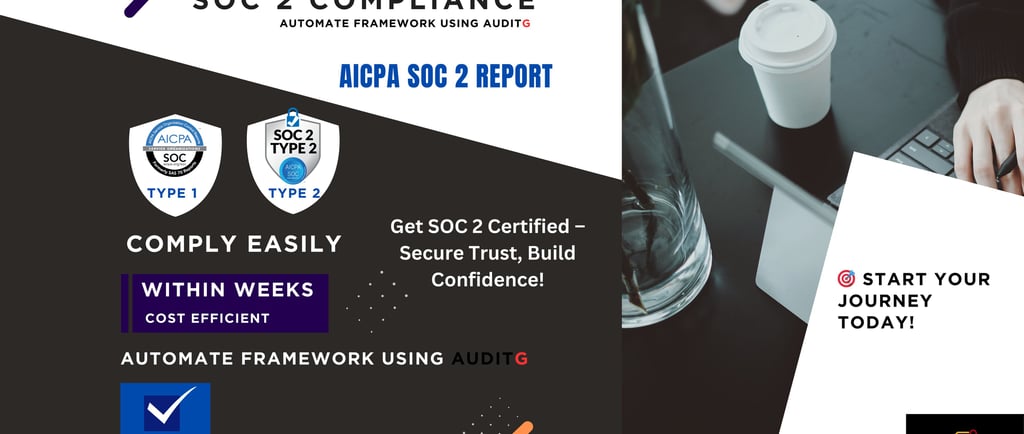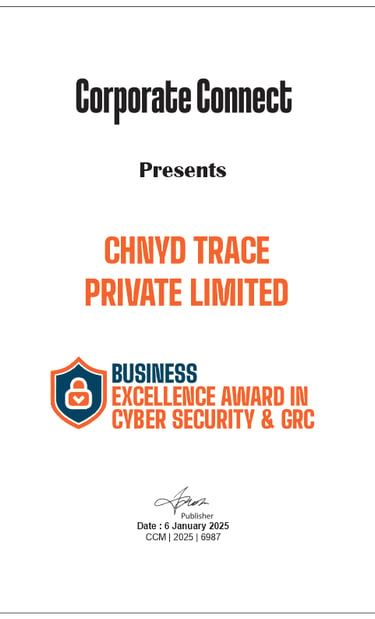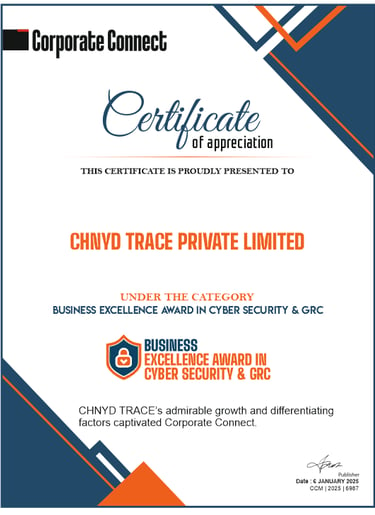what is soc 2 certified
What is SOC 2 Certified? Understanding the Benefits of Certification
11/30/20244 min read
Introduction to SOC 2 Certification
SOC 2, which stands for System and Organization Controls 2, is a certification developed by the American Institute of CPAs (AICPA) specifically for service organizations that handle sensitive customer data. Its origin can be traced back to the growing need for companies to demonstrate a commitment to data security and management, particularly as digital transformations gain momentum. The certification is not only a framework for evaluating controls related to data protection but also serves to assure clients that their sensitive information is secure.
The purpose of SOC 2 certification is to establish a high standard of privacy and security protocols that companies must abide by when managing data, making it especially significant in today’s business landscape where cybersecurity threats are rampant. Achieving SOC 2 compliance means that an organization has undergone an extensive audit process, including an evaluation of their systems, processes, and controls in light of specific criteria designed to safeguard customer data. The framework is inherently flexible, allowing organizations to implement controls that align with their specific operational processes.
SOC 2 reports are structured around five Trust Services Criteria: Security, Availability, Processing Integrity, Confidentiality, and Privacy. Each of these criteria serves as a pillar that shapes the organization's approach to managing customer data. The primary audience for SOC 2 reports includes existing and potential clients, regulators, and business partners who seek assurance regarding an organization’s ability to protect data and manage risks effectively.
In summary, understanding SOC 2 certification is essential for service organizations aiming to establish trust with clients and stakeholders. This certification not only enhances an organization's credibility but also demonstrates its commitment to maintaining high standards of security and compliance in an increasingly complex digital world.
Key Benefits of SOC 2 Certification
SOC 2 certification offers numerous advantages that organizations can leverage to enhance their operations and reputation. One of the most significant benefits is the enhancement of customer trust. In today's digital age, consumers are increasingly concerned about how their data is handled. Achieving SOC 2 certification demonstrates a commitment to data security and privacy, assuring clients that their information is managed with the utmost care and confidentiality. This certification effectively communicates to customers that an organization adheres to industry-recognized standards, which can be a crucial differentiator in competitive markets.
Moreover, SOC 2 certification can lead to remarkable improvements in internal processes within an organization. The certification process encourages organizations to evaluate their operational procedures rigorously, identify inefficiencies, and optimize workflow. This drive for continuous improvement not only enhances service delivery but also prepares organizations for scalable growth. As internal processes become more efficient, organizations are likely to witness increased productivity and a better allocation of resources.
In a competitive landscape, having SOC 2 certification provides a distinct edge over competitors who lack the credential. It positions the certified organization as a trustworthy partner and can be instrumental in securing contracts with larger clients who require proof of compliance. Additionally, organizations with SOC 2 certification often find it easier to navigate regulatory requirements, minimizing exposure to legal risks and penalties.
Furthermore, the emphasis on risk management inherent in the SOC 2 framework equips businesses to identify vulnerabilities proactively. By implementing the necessary controls, organizations can mitigate potential threats and enhance their overall resilience against disruptions. In essence, SOC 2 certification not only serves as a testament to an organization’s commitment to upholding security standards but also unlocks numerous opportunities for growth and compliance.
The SOC 2 Certification Process
Achieving SOC 2 certification requires a structured approach. Organizations must first understand the prerequisites before embarking on this journey. The process begins with a thorough evaluation of whether the organization meets the criteria set forth in the SOC 2 framework, particularly focusing on the Trust Services Criteria: security, availability, processing integrity, confidentiality, and privacy. Once this self-assessment is complete, organizations can identify areas that need improvement, ensuring they are ready for the certification audit.
The next phase is preparation, which involves implementing appropriate controls and policies that align with SOC 2 requirements. It is crucial to document all processes and ensure that all employees are aware of their roles concerning these controls. Organizations should consider engaging a consultant who specializes in SOC 2 to assist in developing these internal systems. Such an expert can provide valuable insights and recommend best practices that align with the requirements.
Once the preparation phase is complete, the organization must select a qualified auditor, preferably one that is certified and has experience in the SOC 2 auditing process. The audit itself can be a thorough examination of the organization's systems and processes regarding the Trust Services Criteria. During the audit, auditors will review documentation, conduct interviews, and perform tests on the implemented controls. It's essential for organizations to be transparent and collaborative during this phase to facilitate a smoother audit process.
After the audit, organizations will receive a report detailing any findings and recommendations for improvements. It is vital to address these findings promptly. Additionally, organizations should consider establishing ongoing routines and monitoring processes to maintain compliance with SOC 2 standards continuously. This proactive approach can help avoid common pitfalls and ensure a smooth auditing process in future certifications.
Maintaining SOC 2 Compliance Post-Certification
Achieving SOC 2 certification is a significant milestone for organizations, but the journey does not end there. Maintaining compliance requires ongoing effort and commitment to security, privacy, and operational excellence. Continuous monitoring of systems is essential to ensure that any changes to infrastructure or operations do not hinder compliance with the SOC 2 standards. Utilizing automated monitoring tools can significantly aid in identifying anomalies and addressing potential vulnerabilities before they escalate into more serious issues.
Periodic audits should also be a cornerstone of a company’s compliance strategy. These audits, whether internal or conducted by external auditors, provide valuable insights into how well the organization adheres to the SOC 2 requirements. Regular auditing helps identify gaps in security measures and can serve as an impetus for necessary adjustments to organizational practices, policies, and technologies. Furthermore, engaging in regular risk assessments enables organizations to stay ahead of emerging threats and compliance requirements. These assessments should be a proactive measure, examining potential weaknesses and refining risk management strategies accordingly.
Another critical aspect of post-certification compliance is employee training. Staff awareness and understanding of SOC 2 practices are paramount for fostering a culture of compliance within the organization. Regular training sessions should be scheduled to update employees on best practices related to data security and privacy policies. This ensures that team members remain vigilant and responsive to their responsibilities in maintaining a secure environment aligned with SOC 2 principles.
In conclusion, maintaining SOC 2 compliance is an ongoing responsibility that requires continuous monitoring, periodic audits, and ongoing training. By implementing these best practices, organizations can effectively ensure that their systems, processes, and people remain resilient against security threats while consistently upholding the standards set forth by SOC 2 certification.
Contact Us for SOC 2
Reach out for SOC 2 Type 2 certification inquiries and AICPA attestation details. We're here to assist you with your compliance needs.
